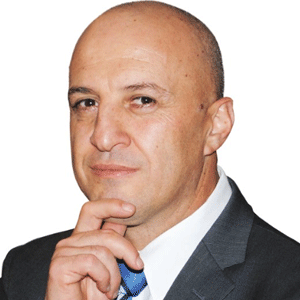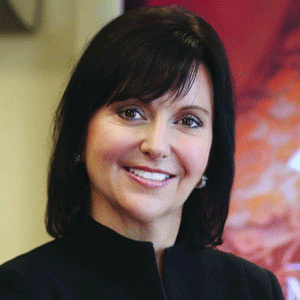THANK YOU FOR SUBSCRIBING

When Worlds Collide: Tech Meet Marketing, Marketing Meet Tech
Michelle Allen, Head of Travel, Google


Michelle Allen, Head of Travel, Google
I have been lucky enough to spend fifteen years in the Travel Industry across different organisations and functions. During that time, the one theme that stands out is “convergence” - the mixing together of different disciplines like technology and marketing - and the emergence of job titles like “Markitecture” that is, marketing with responsibility for technology and systems that automate marketing buying and reporting.
In 2012, the Harvard Business Review claimed that “Shadow IT is out of the closet”, but as a CIO, are you involved in decisions around marketing technology? What is the right technology, the right cost and estimated benefit to your organisation?
Gone are the days when marketing is left to the “creative folk”, technology decisions are left to the “IT folk” and financial objectives are made by the “finance folk” - the lines between these roles are becoming less clear and the success of an organisation relies on the collaboration and alignment across these different functions at all levels.
In 2017 Gartner predicted that by 2020, 20% of global 2000 CIOs would report into marketing. Who is to say Marketing shouldn’t report to the IT organisation considering the emergence of marketing tech and increased automation? Either way, it’s time to really understand what that Venn diagram for your organisation looks like and where you need to collaborate to enable you to move faster, tackle bigger problems and decrease risk.
The travel industry is highly competitive with tight margins with a laser focus on delivering better relevance, revenue and resource efficiency. The way for CIOs to stay ahead is to think about how they can better support Marketing and bring their expertise to advise on the marketing tech ecosystem.
A few questions you may want to ask your Marketing team:
1. Marketing tech - What Marketing technology do we use today, how much does it cost and how do we leverage it?
2. Data - how do we collect and store data and how do we query that data?
3. Automation - What is automated today and what is done manually? Can we gain efficiencies by automating further
The future is always unknowable, but what’s certain is that what’s made travel companies successful in the past five years is not what’s going to make them succeed in the next five. I have the privilege of working with some travel companies at the forefront of the industry and those that are embracing these new trends, using their data to inform decision making and strategy, and embrace automation and align on business metrics - such as sales, profit, lifetime value - are driving fastest towards sustainable growth and delivering on their overarching business objectives.
See More: Top Travel and Hospitality Consulting Companies











